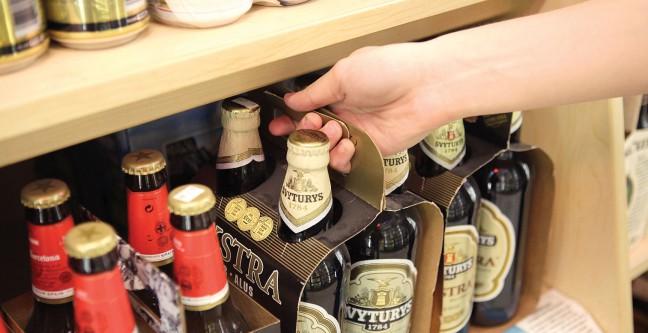It’s no secret that alcohol is a large part of student culture here at University of Wisconsin. After all, this state is known for its beer and cheese, right? If you’ve ever spent a night out at a large music festival such as Summerfest in Milwaukee or attended a football game in our very own Camp Randall, you probably know that carry-in beverages, especially those of alcoholic nature, are generally prohibited. These rules often don’t stop people from trying to sneak in a few shots.
In fact, when searching online for something along the lines of “sneaking alcohol,” a few full pages of search results offered several promising techniques for bringing alcohol into forbidden places. Undeniably, alcohol is most common in its liquid state. But what if the alcohol was no longer liquid, but powdered?
Palcohol, a company that makes and endorses the idea of powdered alcohol, plans to make their product available this spring in many stores that already sell alcoholic beverages. The creator of the product, Mark Phillips, believes the product will create more positive than negative outcomes. One of the main points he argues is that those who enjoy outdoor activities, such as hiking, would benefit from the powdery, light-weight alternative to large bottles of booze. The pure convenience of powdered alcohol is almost impossible to deny, but do the benefits truly outweigh the costs?
Just think of all the ways one could hide alcohol if it was in a powdered form. The sheer volume one would have to conceal would be reduced dramatically if users made the switch from liquid to powdered alcohol. An explosion of opportunities to creatively experiment with the powdered form would no doubt become commonplace. Many more potential repercussions must also be considered when assessing the safety of this product.
Palcohol’s website, as expected, adamantly supports the product, failing to completely acknowledge the potential dangers of powdered alcohol. According to the site, “Senator Charles Schumer recently asked the FDA to ban Palcohol. It is unfortunate that Sen. Schumer allowed himself to get caught up in the hysteria about powdered alcohol by making uninformed statements regarding Palcohol and asking for its ban … Palcohol has many positive uses and shouldn’t be banned. Rather it should be approved, taxed and regulated just like liquid alcohol.” Though Palcohol argues that powdered alcohol could be useful in places such as on airplanes, saving millions in shipping fuel costs, the company fails to address the severity of potential abuse of the product.
Palcohol dismisses the issue of snorting the powdered alcohol, arguing that snorting would take much too long to be worth the attempt. However, snorting alcohol can potentially expose alcohol to the brain by diffusion through other tissues without ever entering systemic circulation in the blood stream. Furthermore, the most hazardous risks are still undiscovered since substantial research has not yet been conducted on powdered alcohol in general. In theory, the worst-case scenario might be impairment of judgment and motor skills at levels significantly higher than normal.
Perhaps more common than snorting would be the risk of simply overdosing on the product. The powdered alcohol is a novelty item and users are unlikely to be aware of the proper dosage. According to CBS News, “the risk of abuse is high, experts say. The convenience of the packets could encourage over-consumption of alcohol, as well as accidents caused by intoxication, such as drunken driving.”
While it might be tempting to convince yourself you would not fall into the category of users who accidentally overdose, during the 2013-14 academic year over 170 of our very own students were admitted to detox. Dr. Kennon Heard, an emergency room doctor and medical toxicologist, has treated people who misused novelty alcohol products and told CBS News, “younger people who did not know the products were drinking them and getting intoxicated much faster.”
The intentions of Palcohol to improve convenience of transporting alcohol may be respectable. However, the potential and likely use of this product in younger communities should be more heavily considered before the release of the product. Authorities, families and producers must approach the integration plan of the product with a more conscientious than experimental attitude.
Don’t get me wrong; this powdered alcohol concept could be a huge success. However, if we want the product to stay on the market once it’s released, we must not be careless and hasty on the front end or it could be banned permanently, shutting the door to a whole new world of drunken opportunity.
Payden White ([email protected]) is a sophomore majoring in community and nonprofit leadership and biology.





















